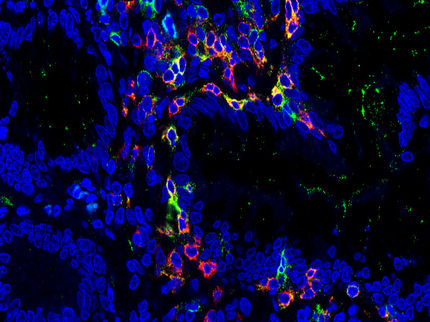With broccoli against infections
Advertisement
The microbiologist and immunologist Prof. Dr. Andreas Diefenbach, Institute of Medical Microbiology and Hygiene, University of Freiburg Medical Centre, has been awarded a European Research Council "Starting Grant" for his project "NutrImmune". The ERC Starting Grant is one of Europe’s most prestigious grants for young investigators.
Diefenbach, who has already established an impressive record in the area of immunology, plans to investigate the influence of nutrients on the intestinal immune system. Vegetables such as broccoli and Brussels sprouts contain glucosinolates which belong to the group of phytochemicals. Diefenbach and his research group have shown that these phytochemicals influence the differentiation of specific immune cells, called lymphoid tissue inducer cells (LTi cells). Mice fed with diets deprived of such dietary compounds have reduced numbers of LTi cells and are highly susceptible to certain types of intestinal infections and to the development of chronic intestinal inflammation. Interestingly, the protective role of LTi cells is brought about by fortifying the barrier function of intestinal epithelial cells. The research establishes an important link between the immune system and epithelial cell renewal. The ERC-funded project will investigate the molecular role of diets in controlling the differentiation and function of LTi cells and their impact on epithelial repair. In the future, such phytochemicals or substances developed from them could enter clinical practice for the treatment of chronic inflammatory bowel diseases such as Crohn’s disease.
Andreas Diefenbach has been an Associate Professor of Microbiology and Molecular Immunology at the University of Freiburg Medical Centre since 2005. He is also an associated member of BIOSS, the Centre for Biological Signalling studies, and of the Spemann Graduate School of Biology and Medicine (SGBM).























































